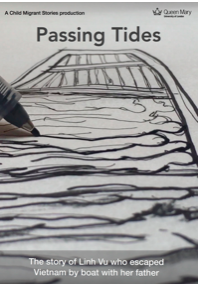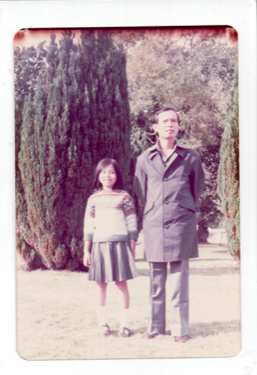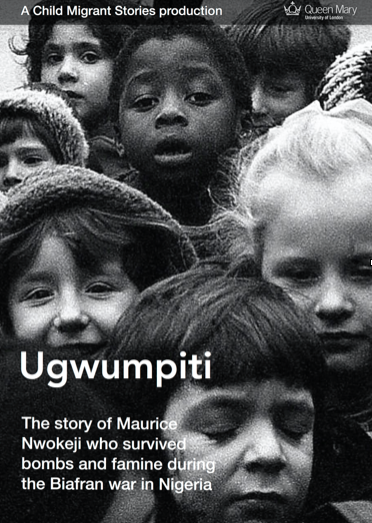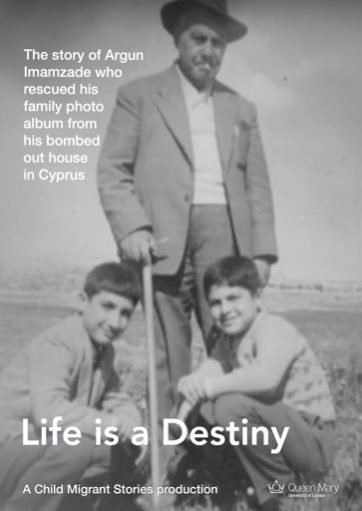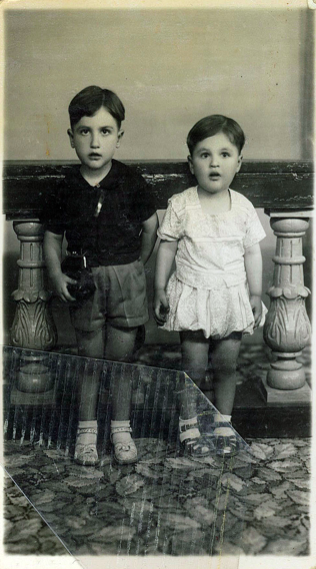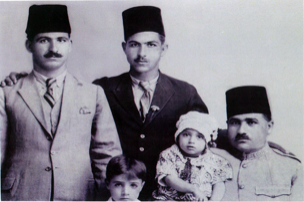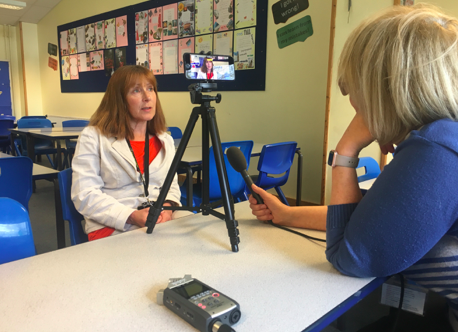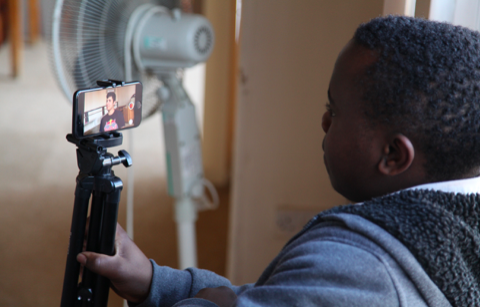Guest post by Eithne Nightingale and Mitchell Harris
Refugee Week 2020 will feel very different – many schools and museums will be closed and there is a danger that the live voices and experiences of refugees will be muted. To help fill this gap Child Migrant Stories invites students, teachers, parents and members of the general public to access their award-winning films, co-produced with people who have come to the UK under the age of 18. There are also a range of stimulating learning resources for Key Stage 1 –5 school children and for adult ESOL students linked to four of these films. Why not get children to make a ‘Welcome’ poster, to think what they would take if they had to leave home in a hurry? See childmigrantstories.com/learning-resources
Voices Past and Present draws on quotes from 17 children who came to the UK under the age of 18. The musical tracks There isn’t any Place to Live for the Refugees and My Life, are original compositions by Henry Bran who came from El Salvador aged 17. Heather who came to the UK from Jamaica, aged 8, writes “The film is truly wonderful and beautifully put together. It encapsulates so many themes for discussion”.

Bengali children in the 1970s in Brick Lane, Courtesy of Tower Hamlets Library and Archives. Featured in Voices Past and Present.
Three subsequent films are based on individual stories. Passing Tides is about Linh Vu who escaped Vietnam with her father by boat, aged 7 in the 1970s. It features powerful footage of Linh’s drawings of hiding in the reeds and being cramped in a small fishing boat with pirates on the horizon. One audience member wrote, “The film shows us a terrible reality of human survival. With the current situation it opened my eyes”.
Ugwumpiti is about Maurice Nwokeji who survived famine and bombs during the Biafra war. His music, and that of his band, One Jah, provides the backing track. The film was nominated for the AHRC/Research Film of the Year at BAFTA in 2017.
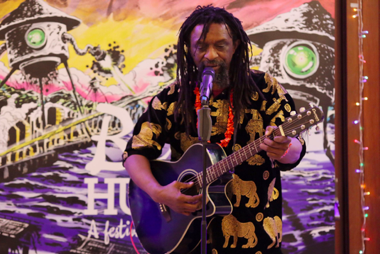
Maurice performing at the opening of the Being Human Festival at the University of London. Photograph courtesy of the Advanced School of Study, University of London. © Lloyd Sturdy
Life is a Destiny is about Argun Imamzade who saved his photo album from his bombed-out house in Cyprus. It features wonderful black and white photographs of Argun’s ancestors going back to the Ottoman Empire.
Two further films were produced for a research project on Refugee Children and Home. Home explores people’s feelings of belonging. As Duncan from Calcutta says, “Any act of racism anywhere affects me. It’s a way of saying ‘we don’t want you here’. I never felt I totally belonged.”
The House that is not There is about Henry Bran’s return to his home in El Salvador where he was mistaken as a ghost – people believed he had been killed in the civil war. It was animated by his daughter, Gabriela after her father’s untimely death.
Child Migrants Welcome? explores the views of lawyers, activists and politicians, alongside those of child migrants, of how unaccompanied child migrants feel welcomed or otherwise. As Gulwali Passarlay, author of the Lightless Sky, an Afghan Refugee Boy’s Journey of a New Life to Britain and interviewed for the film. says, “We’re just asking for the basic human rights. Treat us like human beings. You have to understand the extraordinary circumstances in which child migrants flee their homes.”
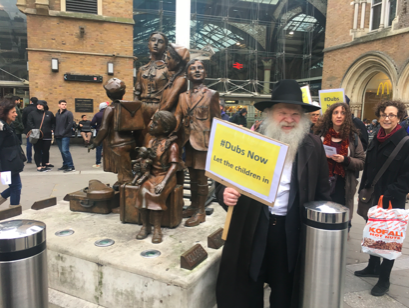
Rabbi Gluck, whose mother came over on the Kindertransport, campaigning for unaccompanied child refugees next to the statue commemorating the Kindertransport at Liverpool Street station. Interviewed for Child Migrants Welcome?
I Don’t Understand Scones is about child migrants who attend Sidmouth College secondary school in Devon.
There are two further films, not on the website, that can be screened within controlled settings and not shared online. Seeking Sanctuary on a Scottish Island is about the experiences of Syrian children and their primary school teachers on the Isle of Bute in Scotland. I am Well Here is about mainly unaccompanied young migrants who attend the Norwich International Youth Project. Please contact Child Migrant Stories (details below) if you are interested in either of these powerful films.
To raise awareness of issues facing child migrants and to highlight these resources we are sharing short clips of the films on Twitter, Facebook and Instagram every day during June. Please follow, comment and help us share them.
Twitter @youngmigrants
Facebook @childmigrantstories
Instagram @childmigrantstories
For further information please email us on world@childmigrantstories.com
Or text/telephone Eithne Nightingale on 07949 080 526 on whose research these films are based.

